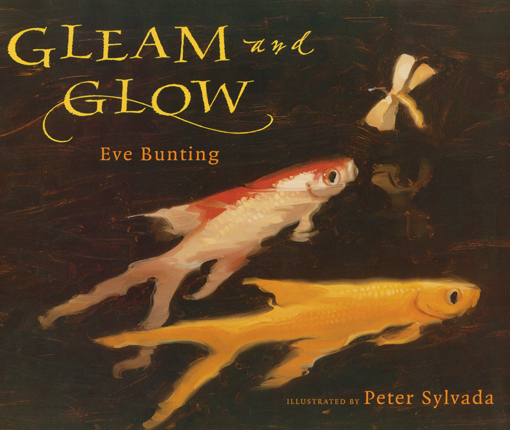Full Text Reviews: School Library Journal - 09/01/2001 Gr 2-4-With her noted skill in presenting difficult topics with clarity and sensitivity, Bunting has written an inspiring story based on the true experience of a Bosnian family forced to flee their country during the recent civil war. Eight-year-old Viktor watches as his father walks away to join the Liberation Army, and knows that soon he, his mother, and younger sister, Marina, will be forced to leave their home, just one step ahead of the approaching enemy forces. Already, strangers pass through Viktor's town on their way to the border. One man leaves his two golden fish with the family, explaining that, "An extra day or two of life is as important to a fish as it is to us." But just a few days later, as they ready themselves to depart, Viktor releases the fish into their pond. After days of walking and weeks of living in a refugee camp, the boy and his mother and sister share a glorious reunion with Papa and eventually return home. The land is ravaged by war and their home is destroyed but the fish have survived, even thrived-they and their offspring fill the pond. The simple, elegant language is at once moving and eloquent when juxtaposed with Sylvada's expressive oil paintings. The artist's palette of rich earth tones and striking brushwork reflect the strong emotional tenor of the story. Focusing on the fearsome impact of war upon families and children, and on those things that allow people to retain their humanity, this book deserves to be introduced and discussed.-Teri Markson, Stephen S. Wise Temple Elementary School, Los Angeles Copyright 2001 Cahners Business Information. - Copyright 2001 Publishers Weekly, Library Journal and/or School Library Journal used with permission. Bulletin for the Center... - 12/01/2001 Viktor’s father has left to join the underground, and Viktor is afraid that the family will have to leave their home soon (“It was getting too dangerous to stay much longer. Our enemies were coming, sweeping through villages like great brooms, forcing people out and burning their homes”) and that his father won’t know where to find them. A fleeing stranger gives Viktor’s little sister a pair of goldfish, which she names Gleam and Glow, but they must be left behind in the pond behind the house when the family departs. After hard traveling, the family finds respite—and Papa—in a refugee camp; months later, they return to find their house a charred skeleton—but the pond alive with multitudes of golden fish. An author’s note describes this story’s basis in an event in Bosnia-Herzegovina, wherein the thriving fish provided not only symbolism but economic rebirth to a devastated family. Unfortunately, the absence of that concrete framework (the story offers no indication of setting or time) and reward (there’s no mention of economic utility here) from Bunting’s story makes it rather ethereal and wishful; the narrative has the neatness of a parable, but also the emotional detachment. Sylvada’s paintings, with their long, elegant brushstrokes, light-touched fields and figures, and clean and well-dressed refugees, make fleeing for one’s life dreamily beautiful, and even the bare bones of the family’s house look less like devastation than construction in progress. Nonetheless, the tale’s final image of a pondful of teeming gold is a memorable one; generous adult assistance may help young listeners better understand its context as well as its limitations. - Copyright 2001 The Board of Trustees of the University of Illinois. Booklist - 12/15/2001 Bunting uses a true story from Bosnia to weave an effective tale of loss and hope. Eight-year-old Viktor and his little sister, Marina, miss their father when he goes off to fight with the underground, and their mother knows they too must soon leave. Another refugee leaves the children two golden fish, and Marina, especially, is enchanted and names them Gleam and Glow. When the family depart, leaving their home and garden, Viktor puts Gleam and Glow in the pond by their house. They cross the border and live for many months in a camp, where their father eventually finds them. When they return home, the house is a skeleton, but the fish have multiplied and filled the pond with gold. Sylvada uses strong texture and shape in his oils, focusing on a single image: a burning house, an abandoned garden, tired people on a long road. The golden glow of the darting fish lights the story with promise. - Copyright 2001 Booklist. Loading...
|



